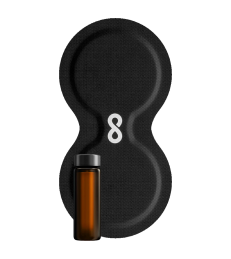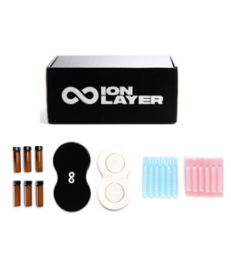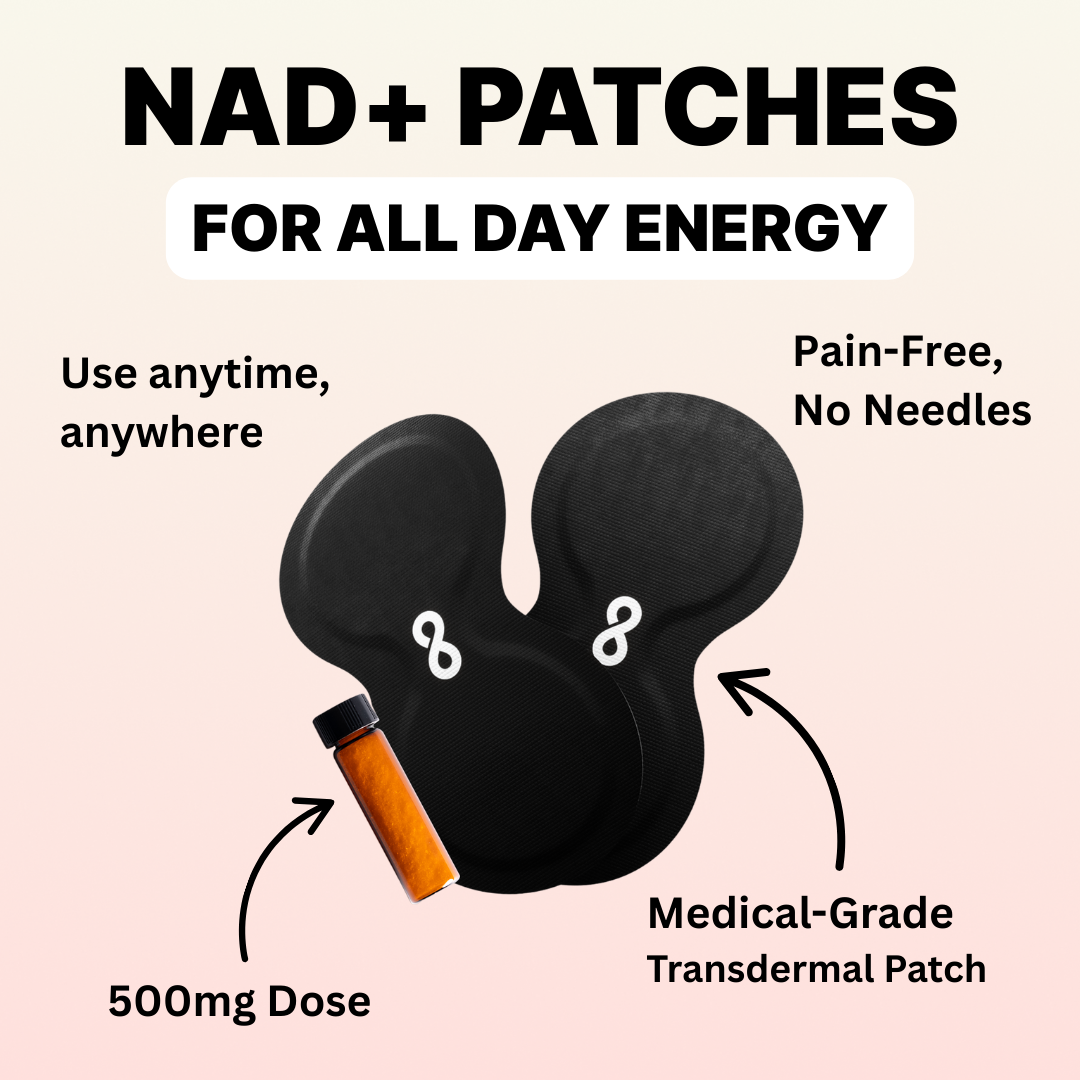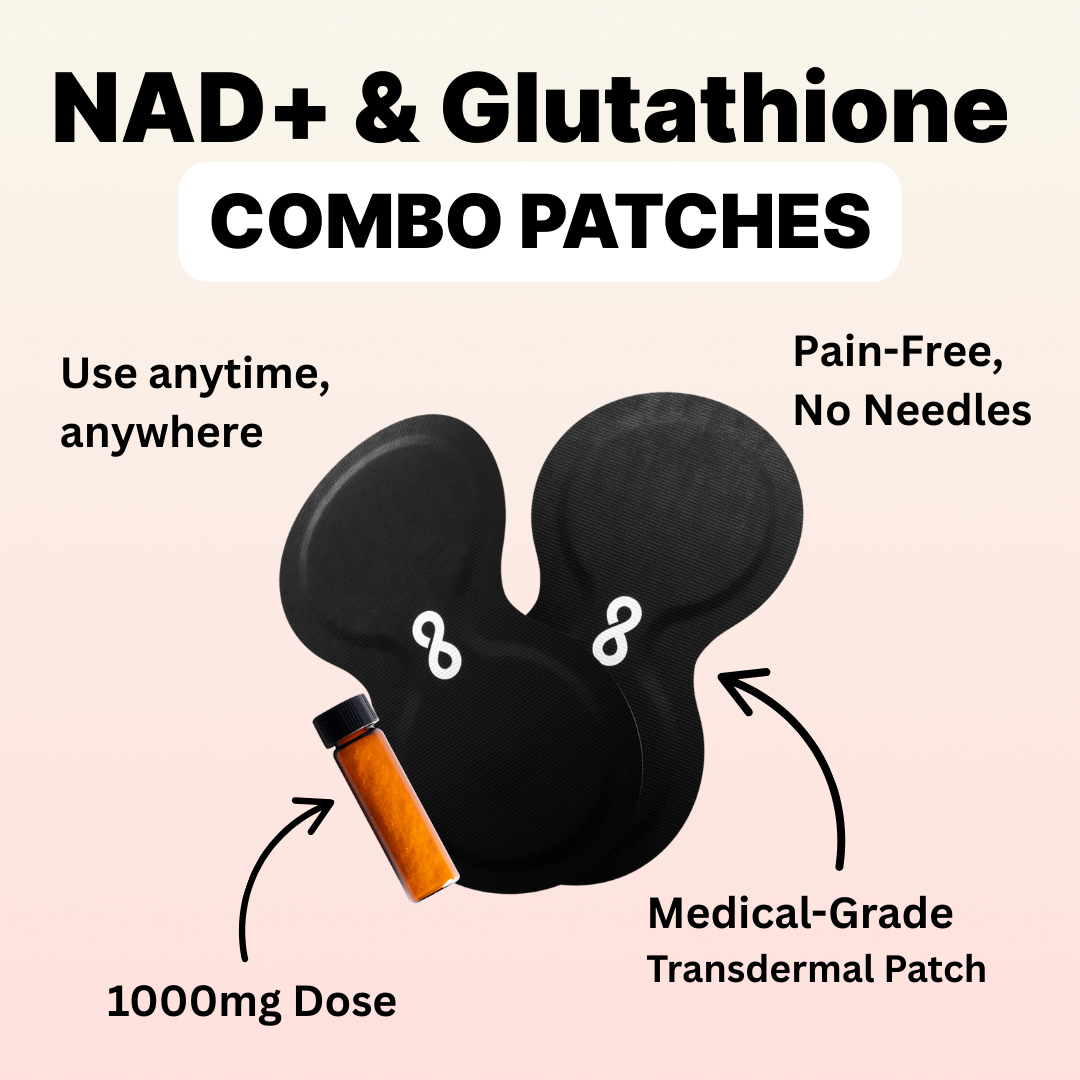
Neither zero stress nor too much stress will take you far. Yes, we said it. You don't want to be completely stress-free all the time. In fact, a certain amount of stress can be beneficial, motivating you to overcome challenges and achieve your goals. It's like the right amount of salt in your favorite dish – it adds flavor and excitement. But just like a dish with too much salt can become overwhelming, excessive stress can wreak havoc on your well-being. That's where the fascinating connection between NAD+ and stress comes into play.
When stress levels are within a manageable range, our bodies activate adaptive responses that help us cope and thrive. Meet stress resilience, our ability to bounce back from stressful situations, adapt to adversity, and maintain a sense of balance. It's like having a sturdy ship that can weather storms and navigate turbulent waters without losing its course.
How does a coenzyme such as NAD+ fit into the equation? Think of NAD+ as the fuel that powers your stress resilience engine. Just like a car needs fuel to keep going, your cells require adequate NAD+ levels to efficiently handle stress and maintain optimal functioning. NAD+ is involved in vital cellular processes that support stress adaptation and overall well-being.
One of the key players in this stress-resilience orchestra is a group of proteins called sirtuins. These proteins, which rely on NAD+ for their activity, act as guardians of cellular health and longevity. They help regulate gene expression, promote DNA repair, and maintain balance between stress adaptation and cellular damage.
Understanding Stress and Its Effects
When stress knocks on your door, or slams it wide open, NAD+ steps up to the challenge by activating sirtuins. These proteins orchestrate a symphony of molecular events that promote cellular resilience, enhance energy metabolism, and bolster stress response pathways. It's like having a team of dedicated firefighters ready to extinguish the flames of stress-induced damage and restore harmony within your cells.
But what happens when chronic stress becomes a constant companion? Unfortunately, chronic stress can deplete your reserves of NAD+, throwing a wrench in the intricate machinery of stress resilience. This can occur due to various factors, including aging, neurodegenerative diseases, anxiety, depression, exposure to environmental toxins, and even drug and alcohol abuse, making you more susceptible to the effects of stress.
The prolonged exposure to stress hormones, such as cortisol, as well as elevated levels of oxidative stress can disrupt the delicate balance of NAD+ in our cells, leading to a downward spiral.
A study published in the Redox Report highlighted how oxidative stress contributed to not only the aging process but also many other clinical conditions including neurodegenerative diseases such as Alzheimer's disease and Parkinson’s Disease, cancer, diabetes, and chronic inflammation.
Without enough NAD+, your cells may struggle to repair DNA damage caused by stress, making them more susceptible to wear and tear and potential mutation. In addition, compromised NAD+ levels can impair mitochondrial function, hampering energy production and leaving you feeling depleted and fatigued.
Hence, chronic stress has been linked to all of the abovementioned physical and mental conditions. Identifying effective strategies to manage stress is crucial for maintaining our overall well-being.
The Role of NAD+ in Cellular Function
As we’ve discussed before, NAD+ plays a vital role in various cellular processes. It is involved in energy production, DNA repair, immune system regulation, and reducing inflammation. NAD+ exists in two forms: NAD+ and NADH, with NAD+ being the active form. Maintaining a balance between these two forms is crucial for optimal cellular function.
Studies have shown that chronic stress can deplete NAD+ levels in the body, disrupting the balance between NAD+ and NADH. This depletion of NAD+ can lead to mitochondrial dysfunction, a process that impairs cellular energy production. Without sufficient NAD+, our cells struggle to function efficiently, leading to a range of health issues.
A study published in Molecular Metabolism reported that an alteration in the NAD+/NADH ratio or the NAD+ pool size may lead to maladaptation within the biological system and contribute to various neurodegenerative disorders, aging, and tumorigenesis.
Supplementation of NAD+ therefore, can be such a game changer. Another study that looked at the impact of exogenous NAD+ supplementation to help improve treatment outcomes for age-related macular degeneration (AMD) indicated that it was able to reduce oxidative stress and up-regulate autophagy, suggesting a potential value in AMD. Autophagy is a key cellular process that breaks down damaged and senescent, “zombie”, cells into its parts and recycles them to generate new and healthy cells.
NAD+ Therapy: A Patched-On Solution
Fret not! Science has come a long way the past few years with innovative solutions to support NAD+ levels and bolster stress resilience. Think beyond precursors and forget sitting hours with a needle in your arm.
NAD+ patches, like the Ion Layer patches are a convenient and effective way to replenish NAD+ in your body. These patches utilize innovative transdermal technology to deliver a controlled dose of NAD+ directly through the skin, ensuring optimal absorption and bypassing the digestive system.
By providing a steady supply of high-dose NAD+ over the course of about 14 hours, these patches act as a secret weapon in your stress resilience arsenal. This method ensures a controlled and sustained release of NAD+, allowing for consistent and effective supplementation. They help restore the balance disrupted by chronic and oxidative stress, giving your cells the fuel they need to repair, regenerate, and adapt. Let us help you hit the reset button on your stress response system, empowering you to face life's challenges with renewed vigor and resilience.







